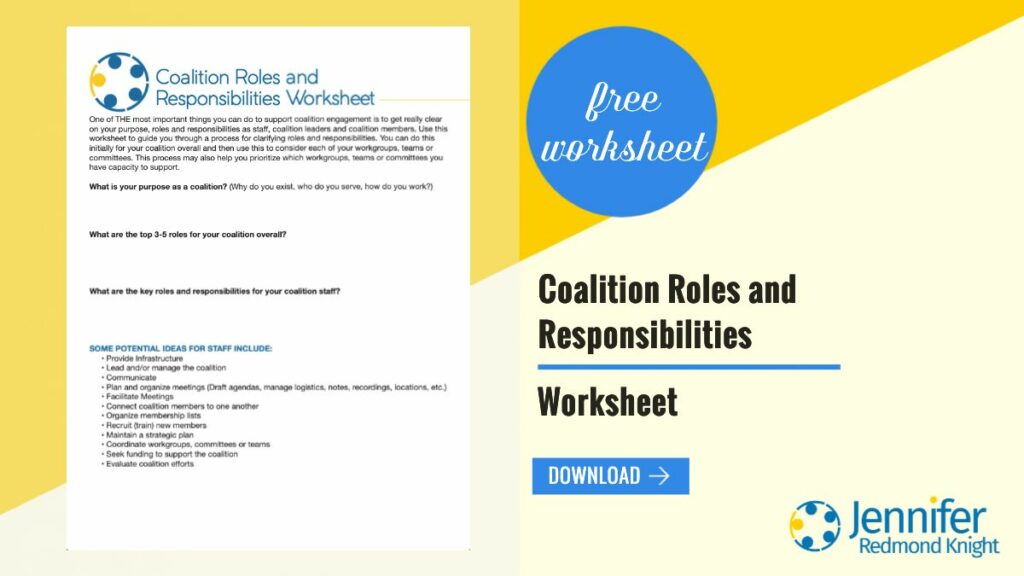In the last blog, we highlighted the importance of trust in coalition building. While it’s easy to say “we need to build trust,” actually building trust takes time and intentionality. When we are building relationships, we don’t usually think of it as “building trust,” but it is! Join me this week as I provide three ways you can build trust with your coalition:
Show genuine interest in others.
Take time to get to know what is important to your coalition members. Ask questions and actively listen to their answers. Practice Stephen Covey’s habit of Seek first to understand, then be understoodⓇ. Take notes and remember what they share with you. Find ways to connect and coordinate efforts to support one another’s work. Say “thank you” and take time to remember and recognize specific contributions. When you genuinely care about your coalition members, you say and do the “little things” that build trust.
Clarify expectations.
One of the most challenging aspects of coalition building is clarifying roles, responsibilities and expectations. When we lead workgroups, committees, networks or teams and we take the time to clarify how people can participate, engage and know what is expected, we are building trust. As Brené Brown reminds us, Clear is Kind. One of the best ways to build trust is to take the time to clarify expectations and ask questions in order to understand their expectations. When our coalition members know what is expected and are safe to ask questions when things are unclear, we are actively building trust. Priya Parker reminds us that meetings are really gatherings. When we invite people to join a meeting, similar to a meal at someone’s home, we need to let them know what they need to bring, when to arrive, what to wear and what to expect when they get there. When we do this, we have an opportunity for both increased trust and increased engagement.
Keep commitments.
Do what you say you will do. Although it may seem simple, practicing this can be very difficult. This is especially true if you are an under-estimater of time (like me!). As a matter of fact, in our wedding vows, my husband promised to be the one responsible for making sure we leave for any airport trip on time. 🙂 Although you may have the best intention to keep your commitment, if you are unrealistic about how that commitment fits with all of your other commitments, then it’s difficult to follow-through. Practice re-evaluating your commitments, being honest about what is possible (and asking for help to be more realistic), communicate clearly and keep your commitments. When you are unable to keep your commitments, one of the best ways to keep building trust is to communicate quickly, openly and honestly that you need to adjust the plan and timeline. As you think about the new year, this is a great time to re-evaluate your commitments and consider how you can build trust by being mindful of your “yes” and your “no.”
So what about you? What are you going to practice this week to build trust in your coalition?
As you practice clarifying roles and responsibilities in your coalition to build trust, check out this free worksheet that will help you in this process.

